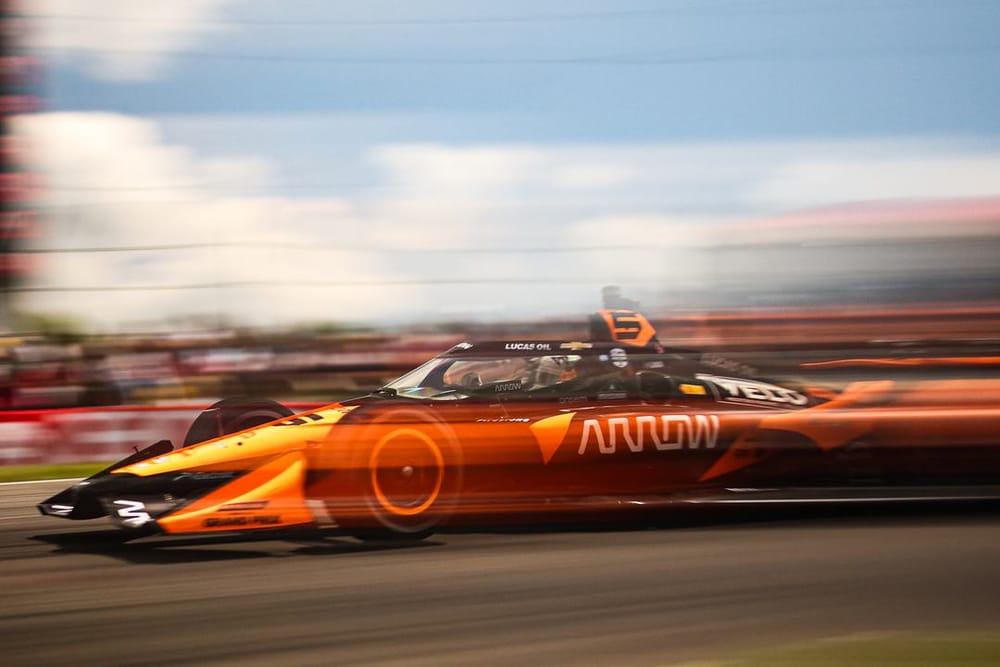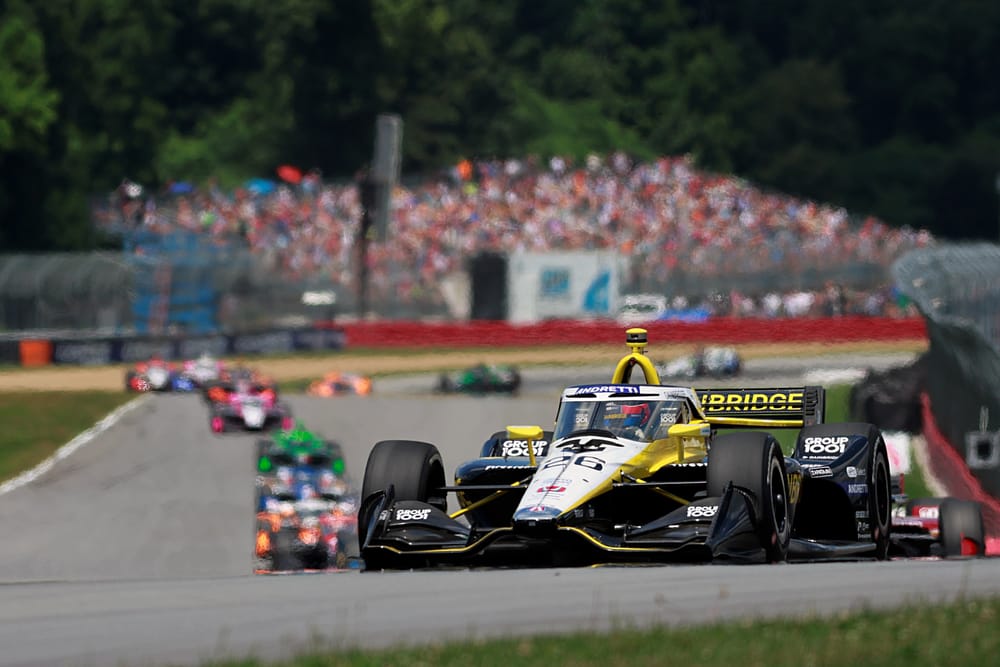714 days! Pato O’Ward wraps his fists on the desk rhythmically to endorse both how long that is - his time without an on-the-road IndyCar win - and his enthusiasm for ending that run in Mid-Ohio last weekend.
The year started so well for O’Ward. With Alex Palou staying at Ganassi, O’Ward emerged as the undisputed leader and number one driver at McLaren’s IndyCar team, plus the beneficiary of the Formula 1 reserve role that Palou had jumped the queue to beat him to.
However, despite a third-place at St Petersburg in the season opener - which did become a win after the Penske push-to-pass scandal, just not until over a month after the race - a really tricky period followed, until Mid-Ohio last weekend ended that spell.
It ended that 714-day run we mentioned, which stretched to Iowa in July of 2022 as O’Ward’s last win. The period since featured questions at almost every race about when that run might end, what it’s like to finish second so often - five times since that Iowa win - and where McLaren was falling short.
“It definitely feels like there's been a certain weight off of our shoulders,” O’Ward says in an exclusive interview on this week’s episode of The Race IndyCar Podcast.
“You put so much into this, and then to come close I would say a solid 10 times in the last 714 days…
“OK, we won St Pete, we got the points, but we didn't get to celebrate, we didn't get to feel what that win.”
You get the feeling the last two years have weighed heavily on O’Ward and the team. O’Ward especially is so in tune with his fanbase, often paying out of his own pocket for fan experiences or providing offers for races to get bums in seats, and not winning for them has been a burden on him.
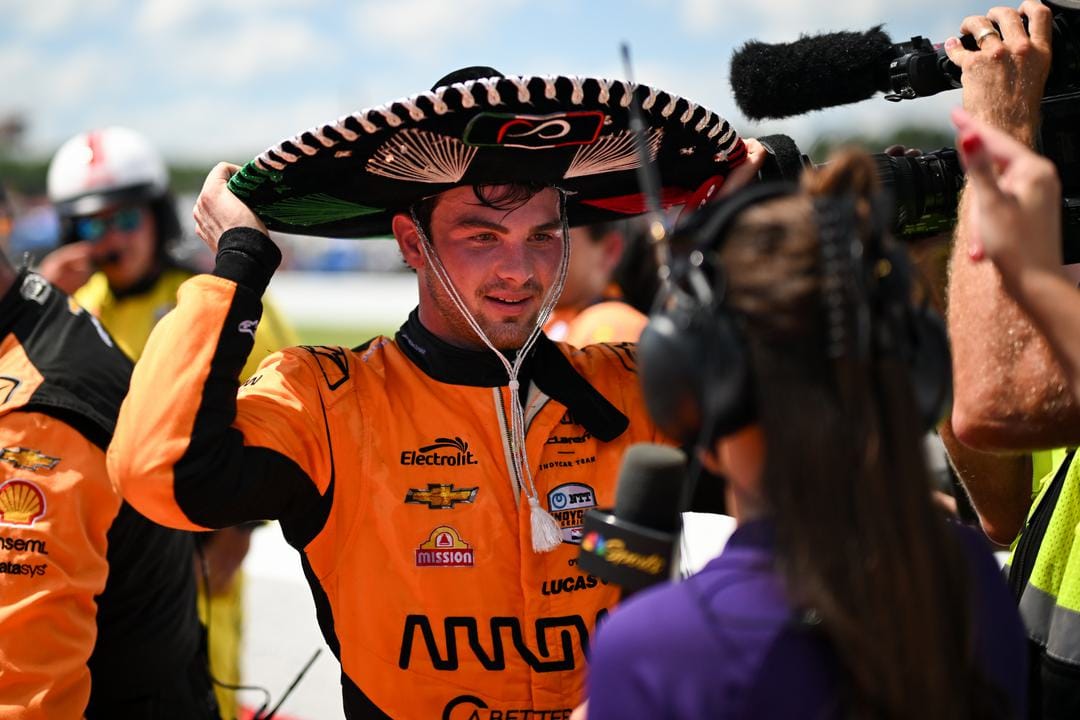
When you consider how much expectation O’Ward places on himself, how much pressure he supports under his weight, it’s easy to explain some of the rollercoaster moments of the year so far.
After St Pete, the whole team was off at the Thermal Club, the non-points event, before Long Beach where he qualified 14th and crashed into the back of his team-mate Alexander Rossi, finishing 16th.
Around goes the No. 5!
— NTT INDYCAR SERIES (@IndyCar) April 28, 2024
Early trouble for @PatricioOWard, who goes spinning into the gravel.
📺: NBC and Peacock pic.twitter.com/rH4w5WigRq
At Barber, he started fourth but spun out avoiding Christian Lundgaard on the brakes, then hit Pietro Fittipaldi and later had a collision with his own team-mate Theo Pourchaire, resulting in 23rd.
An alternate strategy didn’t pay off at the Indianapolis road course where he was 13th.
Some of the errors in this period were his - I’m not trying to make excuses - but when you contextualise the high level O’Ward has performed at over the years at this team and the pressure he puts on himself, it explains a lot about why he’s made some of those mistakes or risky decisions.
He knows there’s a line where too much effort yields that kind of negative outcome, too.
“Long Beach and Barber, they really were un-maximised, and they were very hard weekends to swallow,” says O’Ward.
Pato O'Ward has to serve a drive-through penalty after hitting Pietro Fittipaldi. 😳
— INDYCAR on NBC (@IndyCaronNBC) April 28, 2024
📺 : NBC and Peacock pic.twitter.com/u32KG8dl10
“The problem is, it's always a constant battle. You want something so much, and then you have to force yourself to basically take it back, because it's just so easy to go over the edge.
“From the start of the Month of May, I would say I don't have any regrets.”
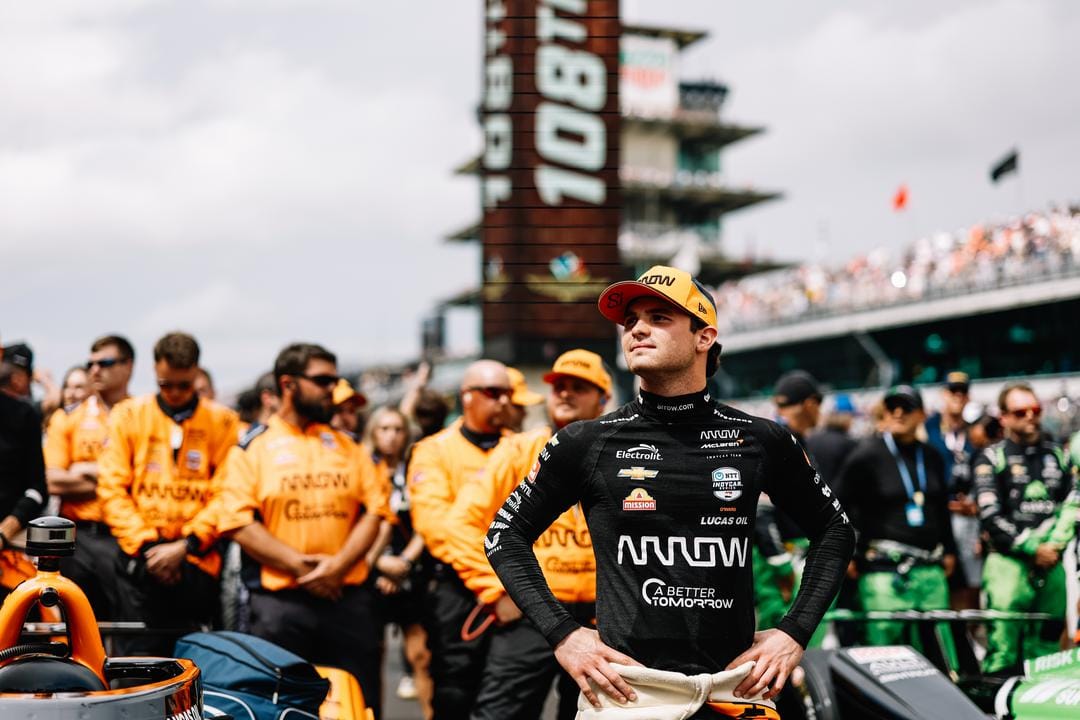
After finishing a narrow second-best at the Indianapolis 500 in May, O’Ward added a seventh at Detroit, eighth at Road America and eighth at Laguna Seca. But despite that forming part of a more consistent run, it was still tough for him. At Detroit and Road America he was forced to the back avoiding incidents at the start.
“You drive your ass off, and you're like, ninth. Urgh!” he adds.
“They're very wearing races where you give it absolutely everything, and you're like, 'Am I doing something wrong? What do we need?'”
It’s extremely clear from the results and the performances that McLaren is not yet in the same league as the likes of Ganassi and Penske.
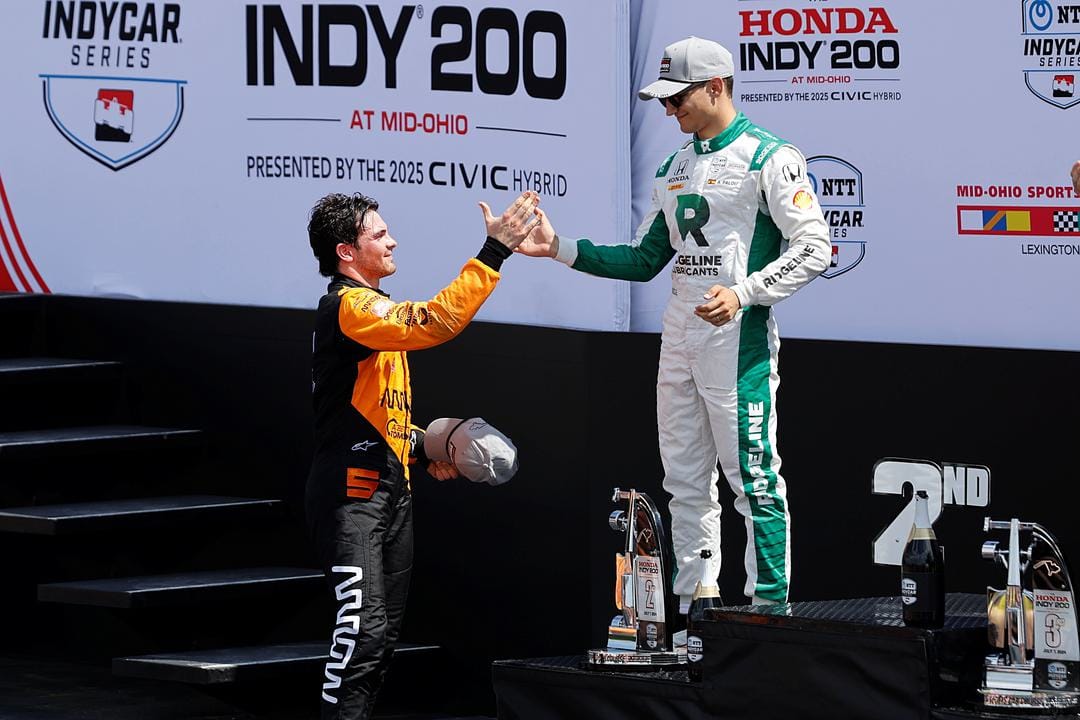
Yes, some O’Ward exuberance might have cost him points earlier in the year, but you can believe he’s extracted the maximum out of the car and saved plenty of other results in which his team-mates or many other drivers in the field wouldn’t be able to deliver such is his innate speed and talent.
On the team’s side, fundamentally it has struggled to understand the tyres this year, and a mixture of the car being lighter at the start of the year - because IndyCar introduced weight-saving parts ahead of the hybrid's (delayed) arrival - harder tyres generally again to cope with the added weight of the hybrid, and now, with the weight of the hybrid installed, it’s been a tough year to adapt and overcome.
It’s still doing things like investing in equipment to catch up to the years of investment that Penske and Ganassi have put in. Don't forget, McLaren is in a shop that is snug for two cars, never mind three, while it awaits moving into Andretti’s old factory for next year to have more space and can use the resources that it has more effectively.
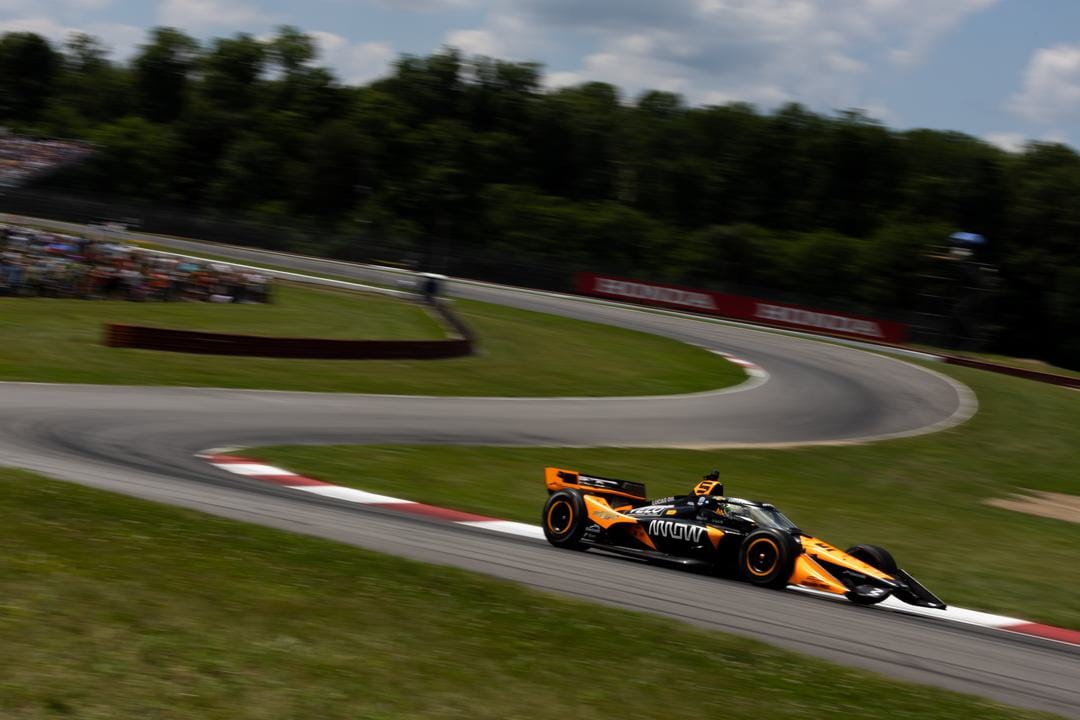
This all adds up to performance on track, especially when the car and rules are changing often.
“I would say this past weekend was the first weekend where you don't feel like you have to rely on something to help you, or to make the impossible happen,” says O’Ward, who added, “I could really extract the maximum out of this without feeling like you've got a knife up to your throat.”
That’s what people have come to know and love from O’Ward: him hanging the car out beyond the realms of what’s possible and delivering the most spectacular driving we see in IndyCar.
Sure, he makes some mistakes, but shouldn’t he be allowed to when he delivers the kind of heroics no one else can do elsewhere?
He trails Palou by 70 points, but with six of the remaining eight races held on ovals, O’Ward has to feel good about reducing that gap when that kind of track hasn’t always been Palou’s speciality.
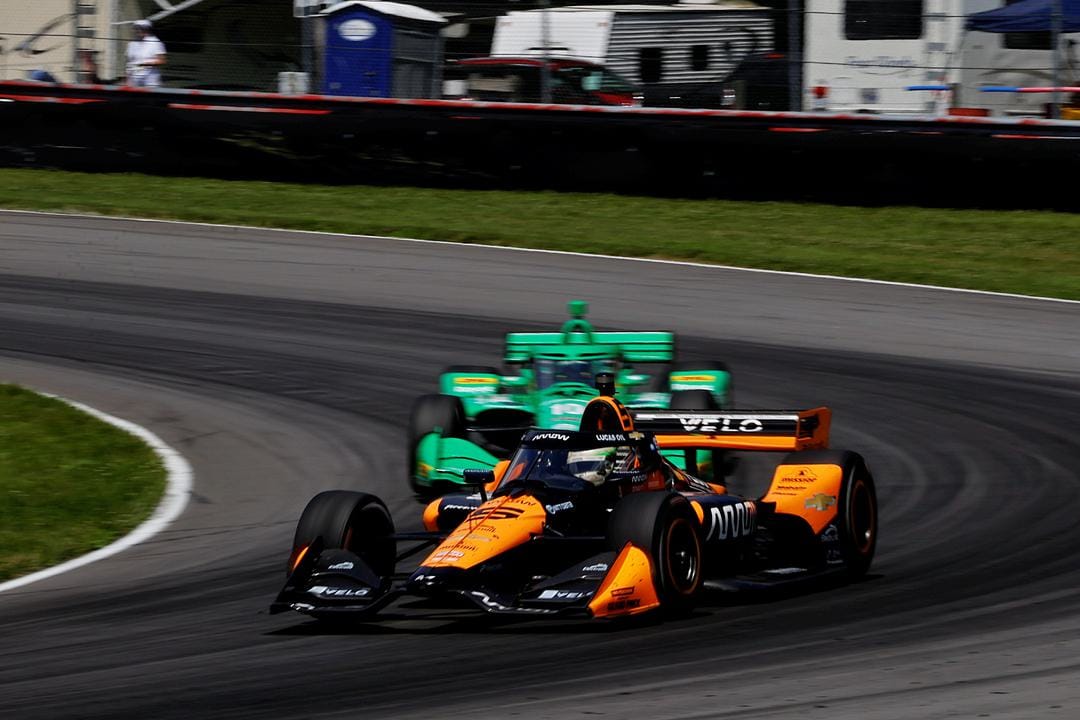
Palou’s speciality has always been road courses like Mid-Ohio, where he won last year, but IndyCar’s most in-form driver couldn’t pressure O’Ward into a mistake even after 25 laps of trying.
It was a brilliant performance from an IndyCar enigma in O’Ward. But there’s a reason why you can audibly hear cheers when he does something good on track, and especially when he wins. He’s the spectacular entertainer IndyCar would be far worse off without.
Lost in the ending of this win drought has been the fact that - despite its struggles to adapt this year - McLaren has taken the first win of the hybrid era and adapted best to its usage.
You have to wonder how much help the team got from the F1 side and the knowledge it has about adapting simulation to account for a hybrid unit, which its IndyCar hybrid support engineer Kenny Krajnik discussed with The Race last week and said was extremely helpful.
"It will be fascinating if that makes a crucial difference and gives McLaren a big advantage," the concluding line of our Mid-Ohio preview read.
McLaren ended up having an advantage, yes. But as it's so often been for the last few years, it was O'Ward who made the clinching difference.

